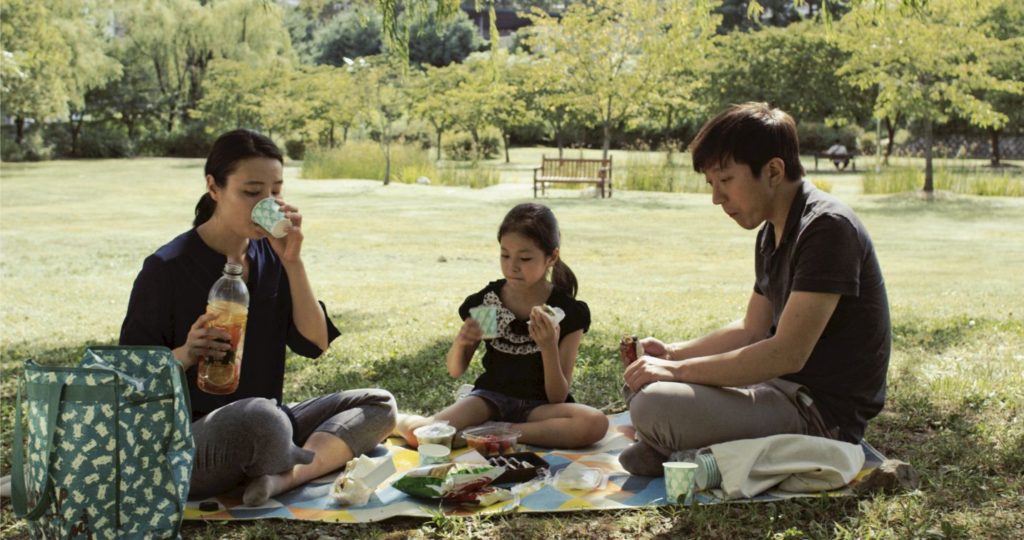Possibly emblematic of changing societal attitudes, “Scattered Night” — directed by Lee Jihyoung and Kim Sol, and written by the former — is one of several recent festival films from female South Korean directors that have focused on a particular theme traditionally considered taboo in Korean society: divorce.
Korean cinema has experienced something of a boom in the international consciousness in the past few years, most recently with the likes of Lee Chang-dong’s “Burning,” and this year’s “Parasite,” from Bong Joon-ho, scooping up awards on the festival circuit. Yet while South Korea’s cinematic output is enjoying worldwide acclaim, as is ever the case, the works of the country’s female directors are having more difficulty breaking through.
Of course, that doesn’t mean that the films don’t exist. The importance of festival programming can never be understated, and international film festivals continue to provide the best opportunities to discover those little-heard-of gems that are otherwise overshadowed by projects from bigger names.
Most impressively, “Scattered Night” is not only directors Lee and Kim’s debut but it’s also their graduation project. Like Kim Bo-ra’s “House of Hummingbird,” and Yoon Ga-eun’s “The House of Us,” it’s told from an adolescent girl’s perspective, with the threat of her parents’ divorce weighing heavy on her mind. In it, pre-teen Su-min (Moon Seung-ah) and her brother Jin-ho (Choi Joon-woo) discover that their parents will soon be living apart permanently. It’s yet to be decided where the children will live: either one with each parent, or — less likely — both with their mom, who thinks “no one in our family should be left alone.”
The film firmly centers 10-year-old Su-min’s point of view and all of the confusion and naiveté that comes with it. To this end, directors Lee and Kim favor low-angle shots, opening the film with the camera at Su-min’s level as adults walk around her, their conversation audible but their faces outside of the frame. Su-min’s parents refer to their separation mostly through euphemism, seemingly unable to parse to their children exactly what will happen. There’s also a current of shame, with Jin-ho realizing that their father hasn’t informed his co-workers of what he’s going through.
The directors have cited the films of the Dardenne brothers, and of Noah Baumbach, as influences on their style. In an interview with the London Korean Film Festival — where the film has been selected for the festival’s Closing Gala — director Kim explains how they consciously captured the “characters’ insecurities through hand-held shooting and long takes,” and avoided “any form of over-the-top expression.” The result is an assured, understated drama about familial hopelessness and loss of power, as seen through the eyes of the most helpless family member.
The film picked up the Grand Prize and Best Acting Award in the Korean Film Competition at Jeonju Film Festival earlier this year, and has since screened at a couple of European fests. It can next be seen in four different locations across the UK, thanks to the London Korean Film Festival’s touring program, and will also be screened at the Mar del Plata International Film Festival in Argentina. See details below.
Upcoming Screenings:
Sunday, November 10 – Monday, November 11 – Mar del Plata International Film Festival – Mar del Plata, Argentina
Thursday, November 14 – Regent Street Cinema + Co-Director Q&A (LKFF) – London, England
Tuesday, November 19 – Glasgow Film Theatre (LKFF) – Glasgow, Scotland
Thursday, November 21 – Queen’s Film Theatre (LKFF) – Belfast, Northern Ireland
Sunday, November 24 – Broadway Cinema + Introduction (LKFF) – Nottingham, England
Published monthly, Under the Radar offers a chance for us to highlight works by and/or about women that haven’t received big releases or significant coverage in the press, but are wholly worthy of attention.
To recommend a title for this feature, please e-mail womenandhollywoodinterns@gmail.com.







